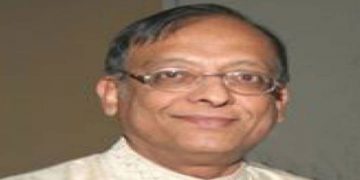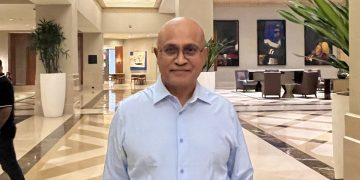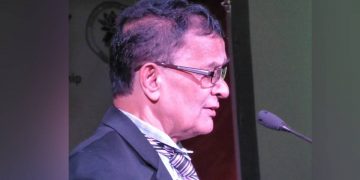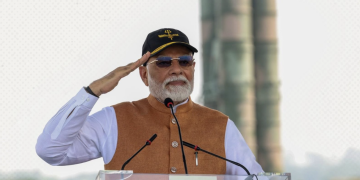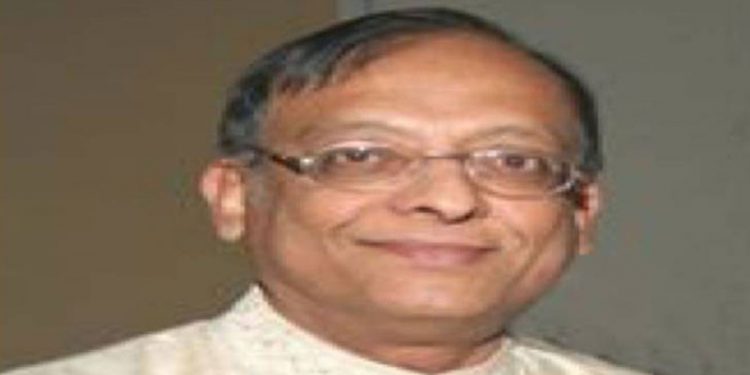I am very happy to write this small tribute to Veer Ramdath Jagessar who was an elder brother and guide for many of us engaged in the struggle for the Indian community in Trinidad and Tobago. News of his passing came yesterday (20 April 2023). He was a resident of Canada where he migrated to more than 30 years ago. Despite leaving the shores of Trinidad, his concerns for the welfare of the Indian Community in Trinidad and the Caribbean were resonated in the many columns he contributed to ICDN and his email exchanges with diaspora groups and activists.
Veer Ramdath differed from many activists by his courage to confront an issues head on and not camp on the periphery. This boldness has brought him numerous detractors but also many admirers. Several activists such as Dr. Kumar Mahabir, Kamal Persad, Rajni Ramlakhan and youths from the Sangh Camps have always held him in high esteem as a brother, guide and guru. In fact, if there is anyone to be identified as the grandmaster of Indian activism in more modern times it would be Veer Ramdath Jagessar.
The following extract from Hariji- Hindu Revivalism in Trinidad and Tobago by D. H. Singh (2022) is a tribute to Veer Ramdath Jagessar, the pioneer of Indian Arrival Day commemoration, journalist, teacher and social and cultural activist. Veer Ramdath was a founder member and first secretary of the Hindu Seva Sangh (1983- ) that went on to sponsor youth development camps that instilled pride in hundreds of Hindu youths across the country.
Veer Ramdath also paid glowing tribute to Hariji for his work in reviving Indian culture. This is a unique act as others are generally not so inclined to pay tribute and express gratitude to others for their sacrifices and contributions. Veer Ramdath wrote: “Trinidad Hindus is blessed to have had a man like Hariji walking the walk of selfless service and seva.” He continued: “Now that I live in faraway Canada, I find I can do no better than walk in those footsteps of Hindu revival as well as my own Indian revival. And what do you know, both are happening right here in Toronto, Canada.”
Extract from Hariji-Hindu Revivalism in Trinidad and Tobago by D. H. Singh
“Arrival Day & Ramdath
Indian Arrival Day was the brainchild of Ramdath Jagessar, a journalist. Hari and Jagessar were undergrads at the St Augustine Campus. Jagessar along with Lloyd Haridan and a few others had formed Mukdar, a journal in the mid-1970s that highlighted the outstanding contributions Indians made to resuscitate the sugar industry and diversify the economy. Mukdar fearlessly addressed the discrimination against Indians in the areas of culture, employment in the public service, agriculture and rural neglect.
Jagessar later edited the Indian Revival and Reform Association (IRRA), a pamphlet dedicated to highlighting the contributions of Indians to the development of the country and the commemoration of May 30 as the birthday of the Indian community of Trinidad. This paper was widely circulated. Written in simple prose, IRRA provided convincing arguments for May 30 to be celebrated as the birthday of the Indian community.
Jagessar also formed an Indian Arrival Day Committee. Other members were Rajiv Siewnarine, Anand Rameshwar Singh, Azamudeen ‘Danny’ Jang, Rajesh Haricharan, Ashik Gobin and Rajni Ramlakhan. Meeting Hariji in Curepe, Jagessar broached the idea of commemorating Indian Arrival Day. Hariji listened attentively to Jagessar and finding merit in his idea, promised to arrange a meeting with the Indian Arrival Day Committee and Sat Maharaj, Secretary General of the Maha Sabha. After the meeting with Jagessar and members of the Indian Arrival Day Committee, the Maha Sabha granted permission for its Youth Arm to work with the Indian Arrival Day Committee to host a massive cultural program to commemorate this historic event. Thus, was born the struggle that witnessed the evolution of May 30 into a public holiday.”
Thanks to the foresight and the pioneering work of Veer Ramdath Jagessar today Indian Arrival Day is a national holiday not only in Trinidad and Tobago but also Grenada, Guyana, Suriname, Fiji, Mauritius and South Africa. In Jamaica, St Lucia, St Vincent and the Grenadines, the respective dates of arrival have been acknowledged by the respective governments. This is no small achievement for the Indian diaspora, and it all started in Trinidad and Tobago by the foresight and vision of a single individual, Veer Ramdath Jagessar.
